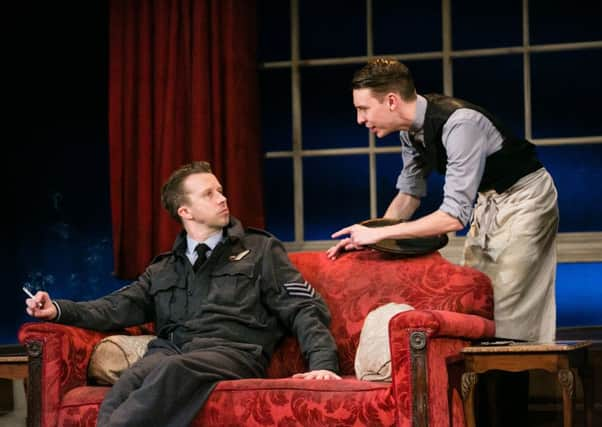REVIEW: Flare Path, Grand Theatre, Blackpool


The action takes place in the early 1940s, over 24 hours in a hotel lounge near an RAF base, with airmen and their wives each facing the personal challenges of their circumstances while bomber planes - friend and foe - circle overhead.
While very much an ensemble piece, the plot centres on Hedydd Dylan as Patricia Warren, the trophy wife of Flight Lieutenant Teddy Graham (Daniel Fraser) and the lover of movie matinee idol Peter Kyle (Lynden Edwards).
Advertisement
Hide AdAdvertisement
Hide AdHer conflicting emotions from the passionate romance to that duty-bound wife run throughout the course of the play, challenged by each man’s weaknesses; Fraser’s Teddy keeping a brave face despite his fear at every bombing mission taking its tole on his health, and Kyle’s fading charms as he enters middle age - at the same time realising how unimportant his glamourous Hollywood life really is in the midst of the Second World War.
Each one’s change is told in a delicate fashion, faithful to its time in history.
But its perhaps the supporting cast of fellow airmen, their wives and hotel staff who bring more heart to the tale, which is based on playwright Terrence Rattigan’s own experiences as an RAF tail gunner in the war.
Claire Andreadis is charming as Doris, the former barmaid married to a Polish Count, who is left fearing for the worst after an emergency raid takes place - the contrast of her unwavering adoration for William Reay’s Polish Flying Officer warms the heart over Patricia’s seemingly calculated loves. And Charlie Hawkins and Audrey Palmer as barman Percy and the hotel’s owner Mrs Oakes bring some welcome punctuation to the military talk with their own civilian issues.
Advertisement
Hide AdAdvertisement
Hide AdDirector Justin Audibert has given the piece an unhurried feel, befitting of the period script, and opening dialogue on love, courage and resonsibility.
The set, lighting and sound design cleverly leave much to the imagination, the take off sequence draws you to the edge of your seat, but this compelling work doesn’t quite sustain throughout, and the end seems a touch too ‘happy every after’ considering all that’s gone before.
But the piece is so much more than simple nostalgia, and can hold its own on the contemporary stage.
Until Saturday.